Informationen zur Zeitschrift
Startseite » Programm » IJAR 2+3-2018 | Coping with the future: Business and work in the digital age – A cross disciplinary conference. The role of action research in social transformation
IJAR 2+3-2018 | Coping with the future: Business and work in the digital age – A cross disciplinary conference. The role of action research in social transformation
Erscheinungsdatum : 18.01.2019
0,00 € - 58,00 €
Inhalt
IJAR – International Journal of Action Research
2+3-2018: Coping with the future: Business and work in the digital age – A cross disciplinary conference. The role of action research in social transformation
Werner Fricke: New Challenges For Action Research
Olav Eikeland: (Why) Does Ar Need to Intervene and Change Things?
Danilo R. Streck: The Role of Action Research in Social Transformation: Memories and Projections
Emil A. Sobottka: Participatory Research in Latin America as Political Engagement
Richard Ennals: Democratic Dialogue and Development: An Intellectual Obituary of Björn Gustavsen
Miren Larrea / Miren Estensoro / Eduardo Sisti: The Contribution of Action Research to Industry 4.0 Policies: Bringing Empowerment and Democracy to the Economic Efficiency Arena
Egoitz Pomares: Alternative Learning Frameworks: Workplace Innovation Programmes and Smart Specialisation Policies in the Basque Country
Laure Kloetzer: Doing Research Upside Down: Action and Research in Cross Self-Confrontations
Reviews
Egoitz Pomares: Edited by Hans Christian Garmann Johnsen, Halvor Holtskog and Richard Ennals (2018). Coping with the future: rethinking assumptions for society, business and work. Routledge 2018, pp. 286, ISBN 978-1138559318
Download of Table of Contents / Inhaltsverzeichnis herunterladen
Download of single articles (partly in Open Access / partly fee-based): ijar.budrich-journals.com
You can register here for the IJAR alert.
Einzelbeiträge zum Download (teils Open Access / teils kostenpflichtig): ijar.budrich-journals.com
Sie können sich hier für den IJAR-Alert anmelden.
Zusätzliche Information
| Verlag | |
|---|---|
| ISSN | 1861-1303 |
| eISSN | 1861-9916 |
| Jahrgang | 14. Jahrgang 2018 |
| Ausgabe | 2 3 |
| Erscheinungsdatum | 18.01.2019 |
| Umfang | 146 |
| Sprache | Englisch |
| Format | 17 x 24 cm |
| DOI | |
| Open Access-Lizenz | |
| Homepage |
Autor*innen
Schlagwörteraction research, Aristotle, democracy, Democratic participation, Development, Emancipation, Francis Bacon, Georg Wilhelm Friedrich Hegel, governance, Industry 4.0., Karl Marx, labour market, Labour market parties, Latin America, participatory research, Social construction, Social Sciences, Social Transformation, Society, Subjectification, work, workplace innovation
Abstracts
New Challenges For Action Research (Werner Fricke)
From the perspective of sociology of work, the article “New Challenges for Action Research” raises the question: How can dependent employees in heteronomous employment relationships fulfill their elementary need for self-determination, if the progressive economisation of the working and living world shapes their consciousness and even their identities? If utilitarian calculi supersede empathy and solidarity everywhere, and everyone is called upon to become a successful manager of himself under the pressure of so-called “self-optimisation” (Subjectification trap)? Research in sociology of work and experiments in action research show how dependent workers can escape from the subjectification trap by engaging in processes of collective reflection, and so reactivate their capacity for active and democratic participation, and for self-determined designing their working conditions to regain the ability to act and the power to independently shape their working conditions. Finally, it is asked if and how this process is possible under conditions of digital work in platform economics. Keywords: Action research; democratic participation; subjectification; platform society
» Download Single Contribution Free of Charge (Budrich Journals) / Einzelbeitrag kostenlos herunterladen (Budrich Journals)
(Why) Does Ar Need to Intervene and Change Things? (Olav Eikeland)
One of the basic and for many, defining tenets of action research is contained in the “slogan” ascribed to Kurt Lewin: “In order to understand it, you have to change it”. The slogan clearly resembles what Francis Bacon claimed for experimental science, however, and also Karl Marx’ well known stance in his Feuerbach-theses. In this text I discuss this “change imperative” and relate it to its “pre-history” before action research. Most action researchers are not willing to subscribe to terms like “social engineering” but still call what they do for “interventions”. The text argues that what most people spontaneously think of as “change” may not be necessary for calling what is done for action research. Yet, the alternative is not to withdraw to a disengaged, spectator position. The change imperative raises important questions about what kind of change action research initiates, and what kind of knowledge results from different forms of change. The text challenges the “slogan” as to what kind of change is appropriate and legitimate in working with changes in individuals, culture, communities, and organisations, and suggests ways forward through developing forms of practitioner research and native or indigenous research. To illustrate, insights from Aristotle and Hegel are invoked. Action researchers are challenged to discuss and clarify answers to questions about what kind of change is produced, and what kind of knowledge is generated. Keywords: action research, Aristotle, art as craft, Francis Bacon, G.W.F. Hegel, Karl Marx, praxis research
» Download Single Contribution Free of Charge (Budrich Journals) / Einzelbeitrag kostenlos herunterladen (Budrich Journals)
The Role of Action Research in Social Transformation: Memories and Projections (Danilo R. Streck)
The conference “Coping with the future: Business and Work in the digital age – A cross disciplinary conference” (Agder University, Norway, on October 8-10, 2018) had one section dedicated to “The role of action research in social transformation”. The text contextualises the theme within the trajectory of the International Journal of ActionResearch, and more particularly of the biannual international conferences organised with the support of the journal. It was prepared for opening for the work of this section of the conference, and served as introduction to the presentation of other papers published in this issue. Keywords: Action research, International Journal of Action Research, social transformation, social sciences
» Download Single Contribution Free of Charge (Budrich Journals) / Einzelbeitrag kostenlos herunterladen (Budrich Journals)
Participatory Research in Latin America as Political Engagement (Emil A. Sobottka)
In a first part the text brings the search of Latin America for its self-interpretation on the base of some selected authors like José Martí, José Vasconcelos, John Mackay and Richard Morse. In this trajectory, the concept people changed its meaning from a holistic to a more differentiated one, that supposes a cleavage between local elites and the socially dominated groups. In a second part the text argues that this new interpretation underlies the emerging of participatory research in Latin America, understood by its pioneers Carlos Rodrigues Brandão, Paulo Freire and Orlando Fals Borda primarily as a combination of research and political engagement in favor of the people defined as a collective of oppressed social groups struggling for its emancipation. Keywords: Participatory research; Emancipation; Latin America
» Download Single Contribution Free of Charge (Budrich Journals) / Einzelbeitrag kostenlos herunterladen (Budrich Journals)
Democratic Dialogue and Development: An Intellectual Obituary of Björn Gustavsen (Richard Ennals)
Björn Gustavsen, with an original professional background as a lawyer and judge in his native Norway, had a formative role in organisational development processes in Norway, Sweden, Scandinavia and the European Union over four decades. Following in the tradition of Norwegian working life research by Trist and Thorsrud, he provided the conceptual framework and practical case studies which have driven major national and international programmes. He learned from different experience of organisational change in, for example, the USA and Japan, but he identified a distinctive way forward for the European Union, where he acted as a senior adviser. In contrast to conventional Taylorist top-down management and reliance on expert consultants, his approach was bottom up and concept driven, with a focus on empowering workers. With a commitment to long-term sustainable processes, he emphasised the importance of capacity building and succession planning, highlighting development organisations. His approach to partnership and coalition building enabled collaboration across sectors, in the cause of creating collaborative advantage. He had a distinctive fluent academic writing style, but spentmost of his time engaged in the design and practice of development, and editing the work of younger colleagues. He saw the role of academic journals and edited books in the development process, so encouraged new publications, but without seeking to dominate. He took ideas of Action Research and case studies, and applied them to national enterprise development programmes, working with the labour market parties. This resulted in a distinctive research and development culture. Keywords: Action Research, democratic dialogue, development coalition, development organisation, labour market parties
» Download Single Contribution Free of Charge (Budrich Journals) / Einzelbeitrag kostenlos herunterladen (Budrich Journals)
The Contribution of Action Research to Industry 4.0 Policies: Bringing Empowerment and Democracy to the Economic Efficiency Arena (Miren Larrea, Miren Estensoro, Eduardo Sisti)
The article is written in the intersection of the fields of regional development and action research, which use different languages when referring to development. The first revolves around innovation revenues, market shares and competitiveness while the second focuses on emancipation, democratisation and empowerment. Based on an experience in Gipuzkoa, Basque Country (Spain), the case used in this paper tells us how a regional government, the Provincial Council of Gipuzkoa and eleven county development agencies are collaborating in order to avoid small firms falling behind in digitalisation processes. The main argument is that action research can help construct collaborative governance modes which, as well as helping specific firms become competitive, empower territorial actors as a collective subject that decides on its own future. Keywords: regional development, action research, Industry 4.0., social construction, participatory governance
» Download Single Contribution Free of Charge (Budrich Journals) / Einzelbeitrag kostenlos herunterladen (Budrich Journals)
Alternative Learning Frameworks: Workplace Innovation Programmes and Smart Specialisation Policies in the Basque Country (Egoitz Pomares)
The paper explores alternative learning frameworks addressing the adaptation of socio-economic institutions to emerging technological paradigms. Based on workplace innovation and development programmes, an exploratory model is presented considering multi-level governance issues. The framework can contribute to better policy implementation of smart specialisation strategies, considering workplace innovation programmes as institutional entrepreneurs. In this sense the framework is applied, in a constructivist way, to regional, sub-regional and organisational institutional contexts. Keywords: workplace innovation, development programmes, policy learning, programme learning, governance, experimental institutions, and technological revolution
» Download Single Contribution Free of Charge (Budrich Journals) / Einzelbeitrag kostenlos herunterladen (Budrich Journals)
Doing Research Upside Down: Action and Research in Cross Self-Confrontations (Laure Kloetzer)
This paper highlights three main points. Firstly, it argues that despite the positioning of mainstream psychology as “objective research” i.e. disengaged from taking action in public life, there has always been in psychology a (quantitatively) minor but (qualitatively) strong tradition of intervention, defined as a joint practice engaging researchers and practitioners in social transformation. It shows how this alternative way of doing research affects all dimensions of the researchers’ professional practice, for better or for worse. Secondly, it presents a specific perspective on intervention, created in France and used in multiple work settings in the last twenty years, called Clinic of Activity. It then introduces and discusses a methodology designed to support development at work through collaborative work analysis and structured dialogue, the Cross Self Confrontations. Thirdly, it reports on a research in Cross Self-Confrontations recently conducted in a Swiss factory, and shows how this methodology supports the co-creation of knowledge and the development of dialogue within a group of workers and across the hierachical lines, therefore contributing to the deep discussion and transformation of work practices. Keywords: Activity Analysis, Activity Development, Cross Self-Confrontation, Dialogue, Dialogical Methodology, Social Transformation
» Download Single Contribution Free of Charge (Budrich Journals) / Einzelbeitrag kostenlos herunterladen (Budrich Journals)
Inhalt
Inhalt
IJAR – International Journal of Action Research
2+3-2018: Coping with the future: Business and work in the digital age – A cross disciplinary conference. The role of action research in social transformation
Werner Fricke: New Challenges For Action Research
Olav Eikeland: (Why) Does Ar Need to Intervene and Change Things?
Danilo R. Streck: The Role of Action Research in Social Transformation: Memories and Projections
Emil A. Sobottka: Participatory Research in Latin America as Political Engagement
Richard Ennals: Democratic Dialogue and Development: An Intellectual Obituary of Björn Gustavsen
Miren Larrea / Miren Estensoro / Eduardo Sisti: The Contribution of Action Research to Industry 4.0 Policies: Bringing Empowerment and Democracy to the Economic Efficiency Arena
Egoitz Pomares: Alternative Learning Frameworks: Workplace Innovation Programmes and Smart Specialisation Policies in the Basque Country
Laure Kloetzer: Doing Research Upside Down: Action and Research in Cross Self-Confrontations
Reviews
Egoitz Pomares: Edited by Hans Christian Garmann Johnsen, Halvor Holtskog and Richard Ennals (2018). Coping with the future: rethinking assumptions for society, business and work. Routledge 2018, pp. 286, ISBN 978-1138559318
Download of Table of Contents / Inhaltsverzeichnis herunterladen
Download of single articles (partly in Open Access / partly fee-based): ijar.budrich-journals.com
You can register here for the IJAR alert.
Einzelbeiträge zum Download (teils Open Access / teils kostenpflichtig): ijar.budrich-journals.com
Sie können sich hier für den IJAR-Alert anmelden.
Bibliografie
Zusätzliche Information
| Verlag | |
|---|---|
| ISSN | 1861-1303 |
| eISSN | 1861-9916 |
| Jahrgang | 14. Jahrgang 2018 |
| Ausgabe | 2 3 |
| Erscheinungsdatum | 18.01.2019 |
| Umfang | 146 |
| Sprache | Englisch |
| Format | 17 x 24 cm |
| DOI | |
| Open Access-Lizenz | |
| Homepage |
Produktsicherheit
Bewertungen (0)
Bewertungen
Es gibt noch keine Bewertungen.
Autor*innen
Autor*innen
Schlagwörter
Schlagwörteraction research, Aristotle, democracy, Democratic participation, Development, Emancipation, Francis Bacon, Georg Wilhelm Friedrich Hegel, governance, Industry 4.0., Karl Marx, labour market, Labour market parties, Latin America, participatory research, Social construction, Social Sciences, Social Transformation, Society, Subjectification, work, workplace innovation
Abstracts
Abstracts
New Challenges For Action Research (Werner Fricke)
From the perspective of sociology of work, the article “New Challenges for Action Research” raises the question: How can dependent employees in heteronomous employment relationships fulfill their elementary need for self-determination, if the progressive economisation of the working and living world shapes their consciousness and even their identities? If utilitarian calculi supersede empathy and solidarity everywhere, and everyone is called upon to become a successful manager of himself under the pressure of so-called “self-optimisation” (Subjectification trap)? Research in sociology of work and experiments in action research show how dependent workers can escape from the subjectification trap by engaging in processes of collective reflection, and so reactivate their capacity for active and democratic participation, and for self-determined designing their working conditions to regain the ability to act and the power to independently shape their working conditions. Finally, it is asked if and how this process is possible under conditions of digital work in platform economics. Keywords: Action research; democratic participation; subjectification; platform society
» Download Single Contribution Free of Charge (Budrich Journals) / Einzelbeitrag kostenlos herunterladen (Budrich Journals)
(Why) Does Ar Need to Intervene and Change Things? (Olav Eikeland)
One of the basic and for many, defining tenets of action research is contained in the “slogan” ascribed to Kurt Lewin: “In order to understand it, you have to change it”. The slogan clearly resembles what Francis Bacon claimed for experimental science, however, and also Karl Marx’ well known stance in his Feuerbach-theses. In this text I discuss this “change imperative” and relate it to its “pre-history” before action research. Most action researchers are not willing to subscribe to terms like “social engineering” but still call what they do for “interventions”. The text argues that what most people spontaneously think of as “change” may not be necessary for calling what is done for action research. Yet, the alternative is not to withdraw to a disengaged, spectator position. The change imperative raises important questions about what kind of change action research initiates, and what kind of knowledge results from different forms of change. The text challenges the “slogan” as to what kind of change is appropriate and legitimate in working with changes in individuals, culture, communities, and organisations, and suggests ways forward through developing forms of practitioner research and native or indigenous research. To illustrate, insights from Aristotle and Hegel are invoked. Action researchers are challenged to discuss and clarify answers to questions about what kind of change is produced, and what kind of knowledge is generated. Keywords: action research, Aristotle, art as craft, Francis Bacon, G.W.F. Hegel, Karl Marx, praxis research
» Download Single Contribution Free of Charge (Budrich Journals) / Einzelbeitrag kostenlos herunterladen (Budrich Journals)
The Role of Action Research in Social Transformation: Memories and Projections (Danilo R. Streck)
The conference “Coping with the future: Business and Work in the digital age – A cross disciplinary conference” (Agder University, Norway, on October 8-10, 2018) had one section dedicated to “The role of action research in social transformation”. The text contextualises the theme within the trajectory of the International Journal of ActionResearch, and more particularly of the biannual international conferences organised with the support of the journal. It was prepared for opening for the work of this section of the conference, and served as introduction to the presentation of other papers published in this issue. Keywords: Action research, International Journal of Action Research, social transformation, social sciences
» Download Single Contribution Free of Charge (Budrich Journals) / Einzelbeitrag kostenlos herunterladen (Budrich Journals)
Participatory Research in Latin America as Political Engagement (Emil A. Sobottka)
In a first part the text brings the search of Latin America for its self-interpretation on the base of some selected authors like José Martí, José Vasconcelos, John Mackay and Richard Morse. In this trajectory, the concept people changed its meaning from a holistic to a more differentiated one, that supposes a cleavage between local elites and the socially dominated groups. In a second part the text argues that this new interpretation underlies the emerging of participatory research in Latin America, understood by its pioneers Carlos Rodrigues Brandão, Paulo Freire and Orlando Fals Borda primarily as a combination of research and political engagement in favor of the people defined as a collective of oppressed social groups struggling for its emancipation. Keywords: Participatory research; Emancipation; Latin America
» Download Single Contribution Free of Charge (Budrich Journals) / Einzelbeitrag kostenlos herunterladen (Budrich Journals)
Democratic Dialogue and Development: An Intellectual Obituary of Björn Gustavsen (Richard Ennals)
Björn Gustavsen, with an original professional background as a lawyer and judge in his native Norway, had a formative role in organisational development processes in Norway, Sweden, Scandinavia and the European Union over four decades. Following in the tradition of Norwegian working life research by Trist and Thorsrud, he provided the conceptual framework and practical case studies which have driven major national and international programmes. He learned from different experience of organisational change in, for example, the USA and Japan, but he identified a distinctive way forward for the European Union, where he acted as a senior adviser. In contrast to conventional Taylorist top-down management and reliance on expert consultants, his approach was bottom up and concept driven, with a focus on empowering workers. With a commitment to long-term sustainable processes, he emphasised the importance of capacity building and succession planning, highlighting development organisations. His approach to partnership and coalition building enabled collaboration across sectors, in the cause of creating collaborative advantage. He had a distinctive fluent academic writing style, but spentmost of his time engaged in the design and practice of development, and editing the work of younger colleagues. He saw the role of academic journals and edited books in the development process, so encouraged new publications, but without seeking to dominate. He took ideas of Action Research and case studies, and applied them to national enterprise development programmes, working with the labour market parties. This resulted in a distinctive research and development culture. Keywords: Action Research, democratic dialogue, development coalition, development organisation, labour market parties
» Download Single Contribution Free of Charge (Budrich Journals) / Einzelbeitrag kostenlos herunterladen (Budrich Journals)
The Contribution of Action Research to Industry 4.0 Policies: Bringing Empowerment and Democracy to the Economic Efficiency Arena (Miren Larrea, Miren Estensoro, Eduardo Sisti)
The article is written in the intersection of the fields of regional development and action research, which use different languages when referring to development. The first revolves around innovation revenues, market shares and competitiveness while the second focuses on emancipation, democratisation and empowerment. Based on an experience in Gipuzkoa, Basque Country (Spain), the case used in this paper tells us how a regional government, the Provincial Council of Gipuzkoa and eleven county development agencies are collaborating in order to avoid small firms falling behind in digitalisation processes. The main argument is that action research can help construct collaborative governance modes which, as well as helping specific firms become competitive, empower territorial actors as a collective subject that decides on its own future. Keywords: regional development, action research, Industry 4.0., social construction, participatory governance
» Download Single Contribution Free of Charge (Budrich Journals) / Einzelbeitrag kostenlos herunterladen (Budrich Journals)
Alternative Learning Frameworks: Workplace Innovation Programmes and Smart Specialisation Policies in the Basque Country (Egoitz Pomares)
The paper explores alternative learning frameworks addressing the adaptation of socio-economic institutions to emerging technological paradigms. Based on workplace innovation and development programmes, an exploratory model is presented considering multi-level governance issues. The framework can contribute to better policy implementation of smart specialisation strategies, considering workplace innovation programmes as institutional entrepreneurs. In this sense the framework is applied, in a constructivist way, to regional, sub-regional and organisational institutional contexts. Keywords: workplace innovation, development programmes, policy learning, programme learning, governance, experimental institutions, and technological revolution
» Download Single Contribution Free of Charge (Budrich Journals) / Einzelbeitrag kostenlos herunterladen (Budrich Journals)
Doing Research Upside Down: Action and Research in Cross Self-Confrontations (Laure Kloetzer)
This paper highlights three main points. Firstly, it argues that despite the positioning of mainstream psychology as “objective research” i.e. disengaged from taking action in public life, there has always been in psychology a (quantitatively) minor but (qualitatively) strong tradition of intervention, defined as a joint practice engaging researchers and practitioners in social transformation. It shows how this alternative way of doing research affects all dimensions of the researchers’ professional practice, for better or for worse. Secondly, it presents a specific perspective on intervention, created in France and used in multiple work settings in the last twenty years, called Clinic of Activity. It then introduces and discusses a methodology designed to support development at work through collaborative work analysis and structured dialogue, the Cross Self Confrontations. Thirdly, it reports on a research in Cross Self-Confrontations recently conducted in a Swiss factory, and shows how this methodology supports the co-creation of knowledge and the development of dialogue within a group of workers and across the hierachical lines, therefore contributing to the deep discussion and transformation of work practices. Keywords: Activity Analysis, Activity Development, Cross Self-Confrontation, Dialogue, Dialogical Methodology, Social Transformation
» Download Single Contribution Free of Charge (Budrich Journals) / Einzelbeitrag kostenlos herunterladen (Budrich Journals)


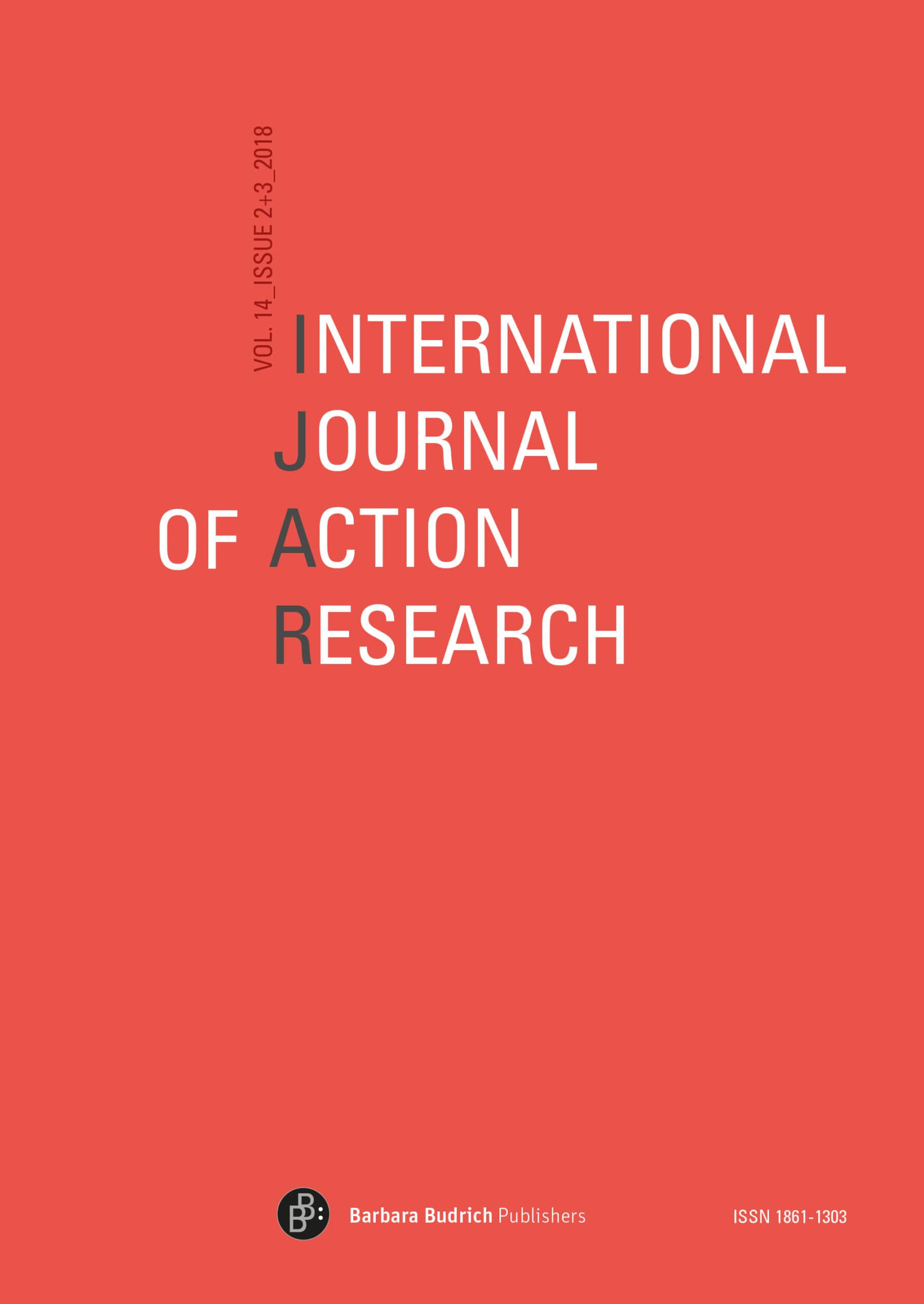

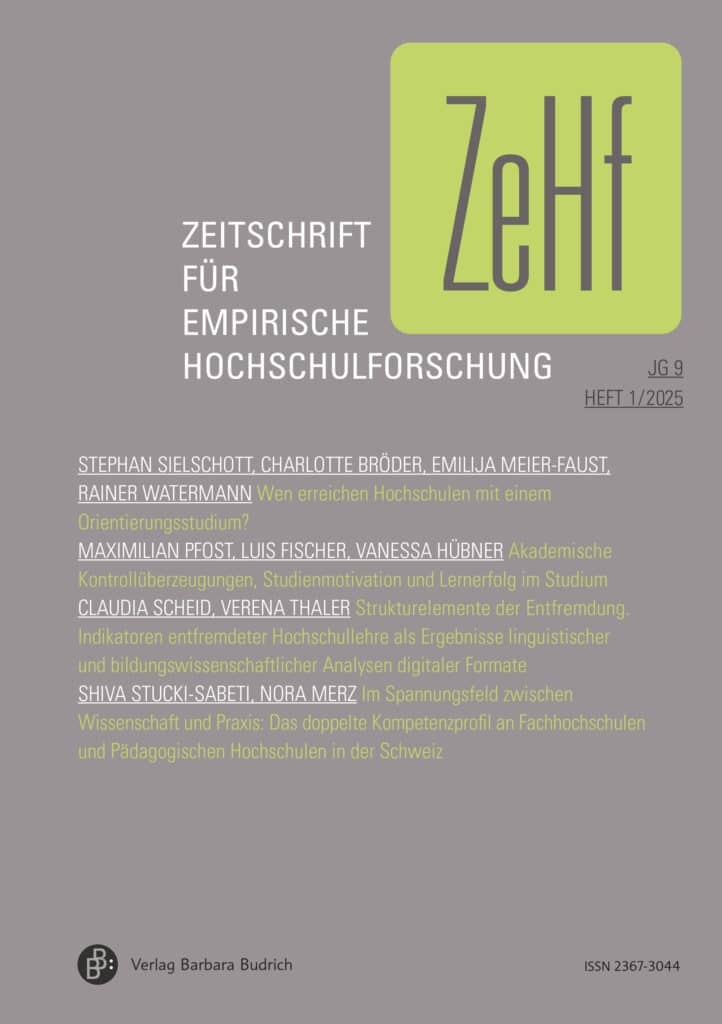
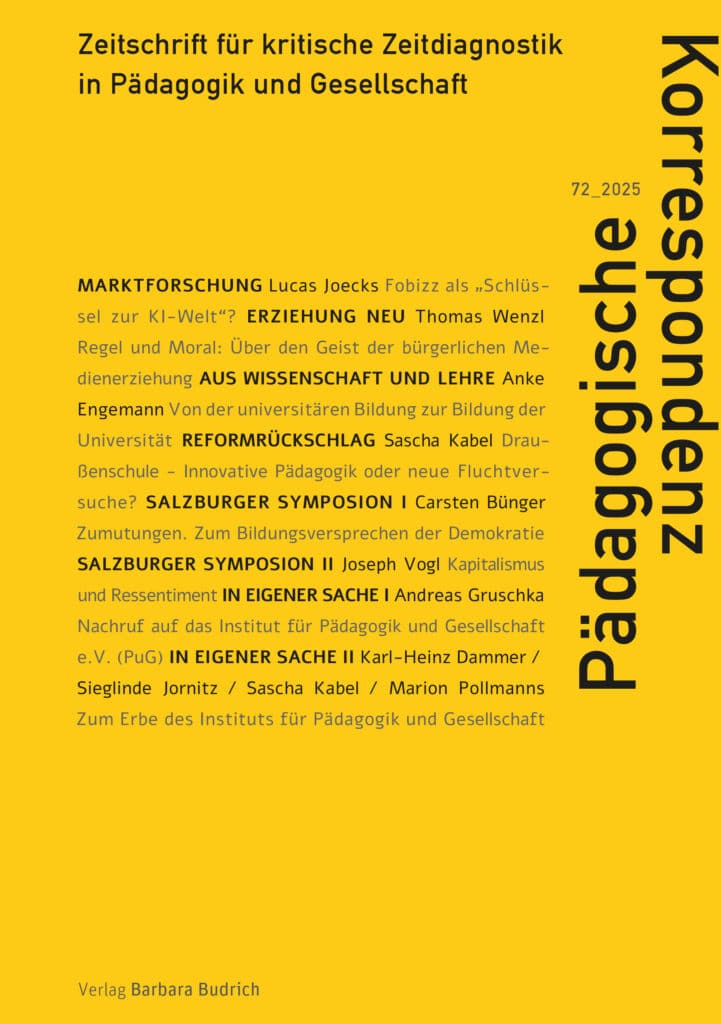
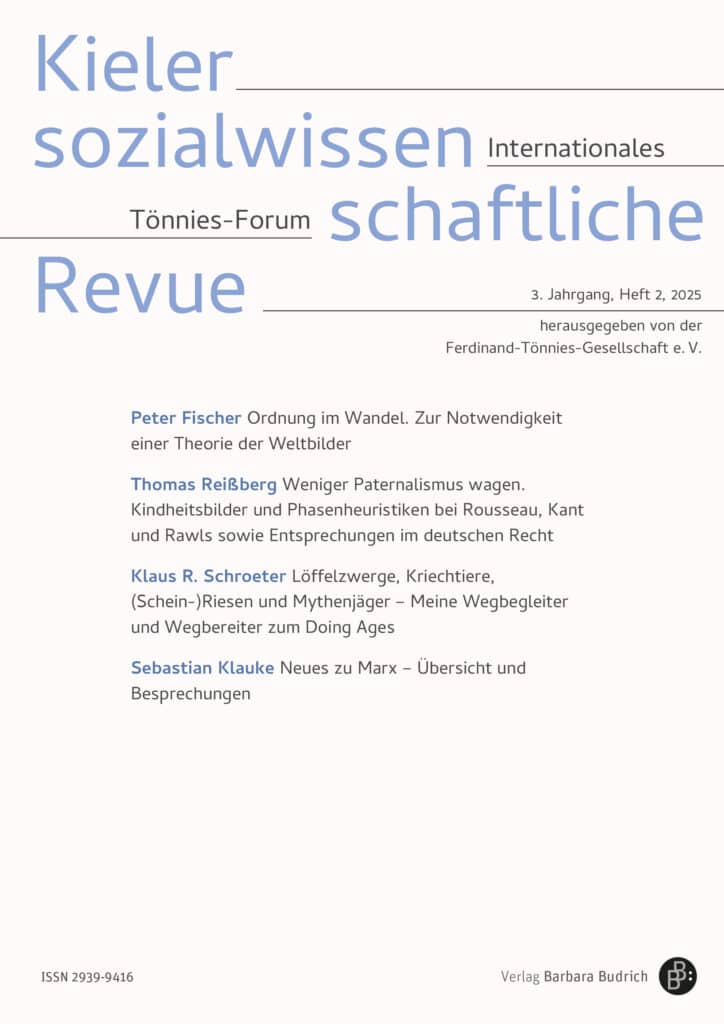
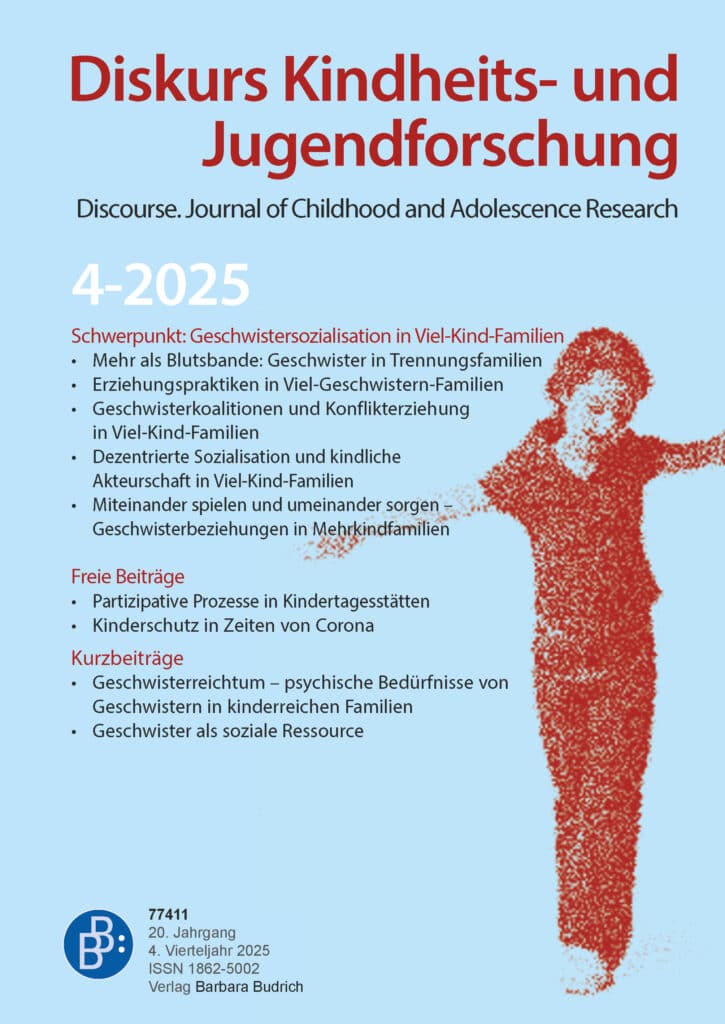
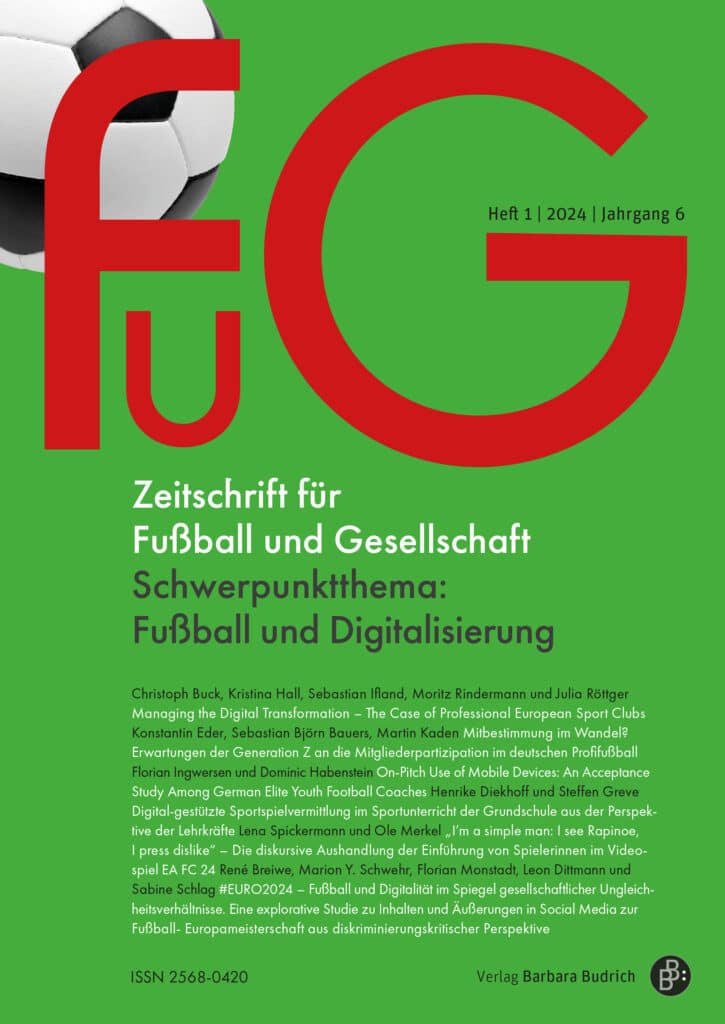

Bewertungen
Es gibt noch keine Bewertungen.